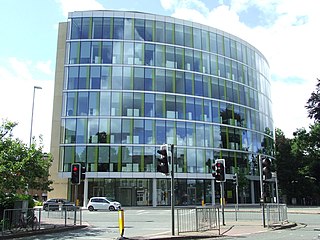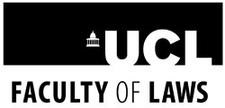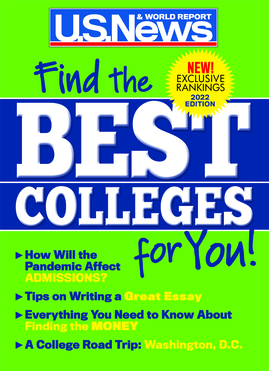Racial quotas in employment and education are numerical requirements for hiring, promoting, admitting and/or graduating members of a particular racial group. Racial quotas are often established as means of diminishing racial discrimination, addressing under-representation and evident racism against those racial groups or, the opposite, against the disadvantaged majority group. Conversely, quotas have also been used historically to promote discrimination against minority groups by limiting access to influential institutions in employment and education.
Pro bono publico, usually shortened to pro bono, is a Latin phrase for professional work undertaken voluntarily and without payment.

A law school in the United States is an educational institution where students obtain a professional education in law after first obtaining an undergraduate degree.

Stanford Law School (SLS) is the law school of Stanford University, a private research university near Palo Alto, California. Established in 1893, Stanford Law had an acceptance rate of 6.28% in 2021, the second-lowest of any law school in the country. Since October 2023, Robert Weisberg has served as its dean.

The American Bar Association (ABA) is a voluntary bar association of lawyers and law students; it is not specific to any jurisdiction in the United States. Founded in 1878, the ABA's stated activities are the setting of academic standards for law schools, and the formulation of model ethical codes related to the legal profession. As of fiscal year 2017, the ABA had 194,000 dues-paying members, constituting approximately 14.4% of American attorneys. In 1979, half of all lawyers in the U.S. were members of the ABA. The organization's national headquarters are in Chicago, Illinois, and it also maintains a significant branch office in Washington, D.C.
LexisNexis is a part of the RELX corporation that sells data analytics products and various databases that are accessed through online portals, including portals for computer-assisted legal research (CALR), newspaper search, and consumer information. During the 1970s, LexisNexis began to make legal and journalistic documents more accessible electronically. As of 2006, the company had the world's largest electronic database for legal and public-records–related information.

A law firm is a business entity formed by one or more lawyers to engage in the practice of law. The primary service rendered by a law firm is to advise clients about their legal rights and responsibilities, and to represent clients in civil or criminal cases, business transactions, and other matters in which legal advice and other assistance are sought.
Paul, Weiss, Rifkind, Wharton & Garrison LLP is an American multinational law firm headquartered on Sixth Avenue in New York City. The firm maintains an all-equity partnership, with approximately 150 partners.

Legal education in the United States generally refers to a graduate degree, the completion of which makes a graduate eligible to sit for an examination for a license to practice as a Lawyer. Around 60 percent of those who complete a law degree typically practice law, with the remainder primarily working in business or government or policy roles, where their degrees also confer advantages.
Quinn Emanuel Urquhart & Sullivan, LLP is a global white shoe law firm headquartered in Los Angeles, California. The firm employs approximately 800 attorneys throughout 23 offices around the world.

The UCL Faculty of Laws is the law school of University College London (UCL), itself part of the federal University of London. It is one of UCL's 11 constituent faculties and is based in London, United Kingdom. It is one of the world's leading law schools, and ranked 6th globally in the 2022 Times Higher Education World University Rankings for Law.
The University of Texas School of Law is the law school of the University of Texas at Austin, a public research university in Austin, Texas. According to Texas Law’s 2019 disclosures, 90 percent of the Class of 2019 obtained full-time, long-term bar passage required/JD advantage employment nine months after graduation.
Law school rankings are a specific subset of college and university rankings dealing specifically with law schools. Like college and university rankings, law school rankings can be based on empirical data, subjectively-perceived qualitative data, or some combination of these. Such rankings are often consulted by prospective students as they choose which schools they will apply to or which school they will attend. There are several different law school rankings, each of which has a different emphasis and methodology.

The University of California, Irvine School of Law is the law school at the University of California, Irvine, a public research university in Irvine, California. Founded in 2007, it is the fifth and newest law school in the UC system. At the time of its founding, it was the first new public law school in California in over 40 years.

Manatt, Phelps & Phillips, LLP is a Los Angeles-based law firm of more than 450 attorneys and other professionals founded in 1965. The firm earned revenues of $316.9 million in 2017. Donna L. Wilson is the firm's Chief Executive and Managing Partner. On June 11, 2018, Manatt announced that Wilson had been elected to succeed William Quicksilver as the firm's Chief Executive Officer and Managing Partner. Wilson assumed the leadership role on July 1, 2019, at which time Quicksilver became the Managing Partner Emeritus.

Deborah Lynn Rhode was an American jurist. She was the Ernest W. McFarland Professor of Law at Stanford Law School and the nation's most frequently cited scholar in legal ethics. From her early days at Yale Law School, her work revolved around questions of injustice in the practice of law and the challenges of identifying and redressing it. Rhode founded and led several research centers at Stanford devoted to these issues, including its Center on the Legal Profession, Center on Ethics and Program in Law and Social Entrepreneurship; she also led the Michelle R. Clayman Institute for Gender Research at Stanford. She coined the term "The 'No-Problem' Problem".

The Yong Pung How School of Law is one of the six schools of the Singapore Management University. It was set up as Singapore's second law school in 2007, 50 years after the NUS Faculty of Law and 10 years before SUSS School of Law. Prior to its establishment as a law school, the school was a department within the School of Business between 2000 and 2007. The school was known as the SMU School of Law until 2021, when it was renamed after former Chief Justice Yong Pung How.

Law School Transparency (LST) is a nonprofit consumer advocacy and education organization concerning the legal profession in the United States. LST was founded by Vanderbilt Law School graduates Kyle McEntee and Patrick Lynch. LST describes its mission as "to make entry to the legal profession more transparent, affordable, and fair."

The U.S. News & World Report Best Colleges Ranking is an annual set of rankings of colleges and universities in the United States, first published in 1983. It has been described as the most influential institutional ranking in the country.












